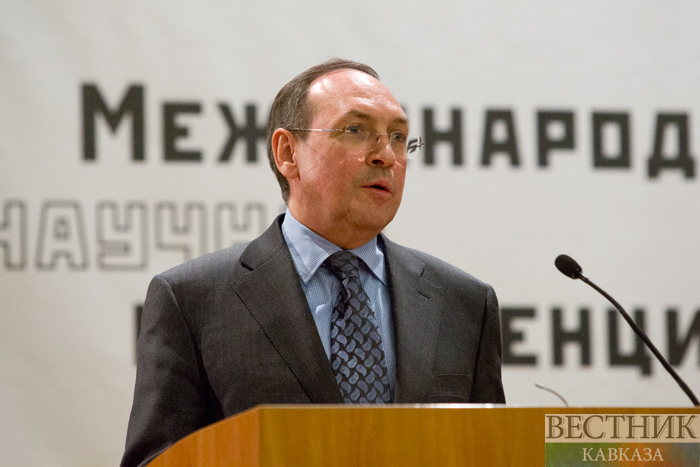Lomonosov Moscow State University is holding the international scientific conference titled 'The Centennial of the Russian Revolution of 1917'. The chairman of the State Duma Committee on Education and Science, Vyacheslav Nikonov, shared his vision of the events that happened 100 years ago. "We lost the First World War when we signed the Treaty of Brest-Litovsk. But in February 1917, Russia had no reason to feel doomed. Germany had much more reasons, as well as the countries of the 'Quadruple Alliance'. In 1917, Russia had 60 army corps, compared to the 35 it had at the start of the war. The army, which had a total operational strength of 3.5 million people in 1915, in 1917 grew to 7 million people. It was the most powerful military machine that ever existed in the history of mankind until 1917. We had every chance to win this war as early as 1917 ... If it wasn't for the revolution, Russia would be in the camp of the victors," Nikonov is convinced.
According to him, Russian statehood fell victim to these destructive flows: "It was a series of conspiracies in all the circles, starting from the right-monarchist to the socialist ones, and eventually these conspiracies had a serious cumulative impact. As the main ideological tool, they used a conspiracy of right-wing forces, involving treason in the higher echelons of the Russian government ... "

Vyacheslav Nikonov believes that the February revolution was engendered by anti-government propaganda, panic and supported by a riot of reserve battalions, which were in the capital in large numbers. "The emperor disavowed under the pressure of the army ... He resigned his authority to the military commander who betrayed him, although at that time the situation for the authorities was less acute than, for example, in 1905, when the whole country was rioting and when it was necessary to apply a serious force in order to calm the country. Even Plato knew that lowest classes are not able to do anything against upper classes, if they were not split. Russia at that time showed a sample of a country with divided upper classes. This split within elites did not let Russian statehood to stand," Nikonov is convinced.






